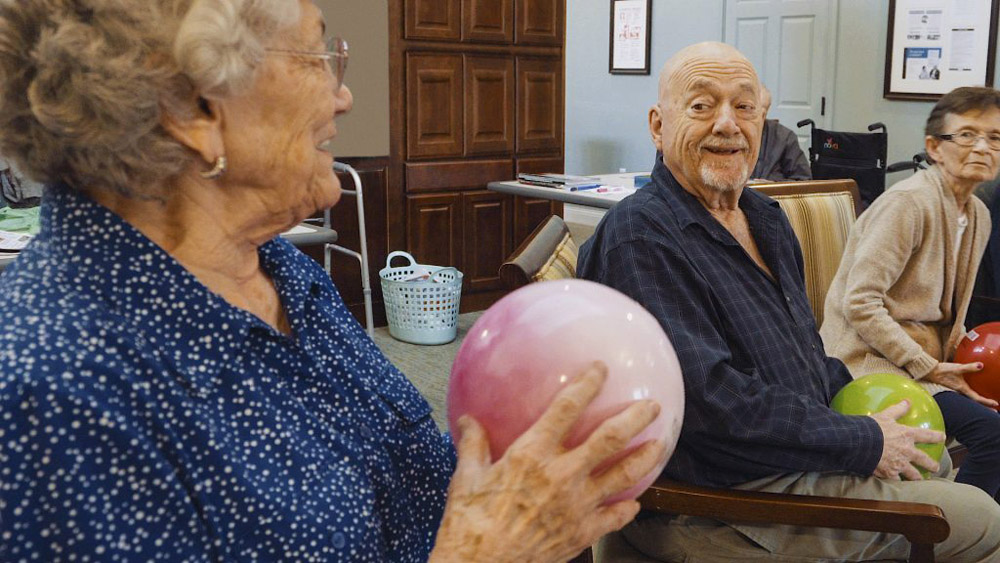Discover Compassionate Memory Care: Enhancing Lifestyle for Loved Ones
The trip of looking after an enjoyed one with cognitive impairments offers unique challenges that can greatly affect family characteristics and psychological wellness. Compassionate memory care centers use an organized, helpful setting designed to deal with these difficulties while improving the lifestyle for locals. By focusing on personalized care and meaningful involvement, these centers not only boost those impacted by conditions like Alzheimer's and dementia but also supply peace of mind for households. As we explore the necessary components of thoughtful memory care, it comes to be clear that recognizing these options can make a substantial distinction in the lives of all involved.

Recognizing Memory Care
Recognizing memory care involves identifying the specific support and solutions developed to assist people with cognitive problems, such as Alzheimer's condition and other forms of dementia. Memory care facilities focus on creating a risk-free and structured environment that advertises the wellness of residents while addressing their unique cognitive challenges.Key elements of memory care consist of trained personnel who are well-informed concerning the complexities of mental deterioration and associated problems. These specialists utilize evidence-based techniques to enhance cognitive feature and maintain dignity through individualized care plans. The physical setting is likewise tailored to lessen confusion and advertise knowledge, usually including secure locations to stop wandering. Memory Care Charlotte.Moreover, memory care stresses social interaction and meaningful tasks that boost cognitive abilities and foster links amongst residents. This approach recognizes the significance of maintaining social communications to fight isolation often experienced by individuals with memory loss.Families play a vital duty in memory care, as their involvement helps create an encouraging network that enriches the lives of citizens. By comprehending the specific nature of memory care, family members can make educated decisions to boost the top quality of life for their loved ones encountering cognitive disabilities
Key Attributes of Compassionate Care
Caring care in memory care settings is identified by a holistic method that focuses on the psychological and mental well-being of citizens. Key functions of this technique consist of embellished care plans customized to each citizen's distinct requirements, preferences, and life history. This personalization cultivates a sense of identification and belonging, which is crucial for those experiencing cognitive decline.Another essential function is the visibility of qualified team that are not just knowledgeable in mental deterioration care however additionally thoughtful and compassionate. These caregivers take part in purposeful interactions, utilizing methods such as recognition therapy to get in touch with citizens and lower sensations of irritation or anxiety.Additionally, caring care environments prioritize sensory stimulation and therapeutic tasks that resonate with citizens' passions. This might include art treatment, music sessions, and memory tasks, all made to enhance cognitive function and psychological connection.Furthermore, family participation is urged, permitting loved ones to get involved in care activities and sustain their relative's psychological needs. Ultimately, the crucial functions of thoughtful care develop an environment where citizens feel safe, valued, and understood, substantially improving their quality of life.
Benefits for Homeowners and Family members

Activities That Foster Engagement
Meaningful tasks play an important role in fostering interaction among locals in memory care settings. These activities not just promote cognitive feature yet also promote social interaction, emotional wellness, and a feeling of purpose. Customized programs that think about homeowners' interests and abilities are very important for making best use of participation and enjoyment.Creative searches, such as paint, crafting, or music therapy, urge self-expression and can stimulate pleasurable memories. Structured workout sessions, including chair yoga exercise or strolling groups, improve physical health and wellness while providing opportunities for socialization. Additionally, memory therapy, which includes reviewing previous experiences and noteworthy life occasions, can enhance links in between homeowners and caregivers.Incorporating interactive video games, challenges, and even horticulture can further boost cognitive interaction and foster teamwork among residents. Frequently scheduled group tasks, such as flick evenings or themed events, create a sense of neighborhood, allowing residents to develop friendships and share experiences.Ultimately, the implementation of different tasks customized to specific choices is crucial in memory care. By promoting engagement through meaningful shows, centers can greatly improve the top quality of life for locals, ensuring they really feel valued and attached within their area.
Selecting the Right Memory Care Center
Picking a memory care facility entails careful consideration of different factors that influence the wellness of residents. Begin by reviewing the facility's general setting, making certain it is secure, inviting, and made to decrease complication. Look for areas that urge social interaction while supplying personal privacy for individual reflection.Next, assess the qualifications and training of the staff. Taking care of people with memory disabilities requires specialized expertise. Verify that personnel members get recurring training in mental deterioration care and employ compassionate interaction techniques.Additionally, think about the range of solutions provided, such as customized care strategies, therapeutic activities, and assistance for member of the family. A center that highlights holistic care can substantially enhance the top quality of life for residents.Visit possible facilities to observe interactions in between staff and residents, and ask regarding their strategy to involving those with memory challenges. Inspect reviews and seek referrals from health care specialists or local support groups.Lastly, think about the center's place and access for family visits, as normal contact can improve citizens' psychological well-being. By taking these elements right into account, you can make a knowledgeable decision that ideal sustains your liked one's needs.
Regularly Asked Inquiries
What Qualifications Do Memory Care Team Usually Have?
Memory care staff commonly hold certifications that include specialized training in mental deterioration and Alzheimer's care, in addition to qualifications in emergency treatment and CPR. Several have backgrounds in nursing or social job, providing them with vital skills in individual assessment and psychological assistance. Memory Care. In addition, ongoing education in behavior monitoring techniques and communication approaches is common, making sure staff continue to be adept at dealing with the distinct requirements of individuals with cognitive problems while fostering an encouraging environment
Just How Can Family Members Take Part In Their Family member's Care?

What Is the Expense Range for Memory Care Providers?
The cost array for memory care services can differ considerably based on factors such as area, facility amenities, and level of care needed. On standard, households might expect to pay in between $4,000 and $8,000 per month. Extra services, specialized programs, and private accommodations can better influence rates. Alzheimer’s Care. It is a good idea for households to extensively research study and go to centers to recognize what is consisted of in the fees and explore financial help alternatives readily available
Exist Certain Dietary Options Available for Homeowners?
Yes, numerous memory care facilities use tailored dietary options to fulfill the details nutritional requirements of citizens. These alternatives typically consider various nutritional restrictions, such as diabetes mellitus, heart wellness, or allergies. Facilities usually employ certified dietitians to develop dish strategies that advertise total wellness while thinking about specific choices. Furthermore, relative are generally encouraged to take part in discussions regarding dietary options to assure that their loved ones' tastes and demands are valued.
How Are Emergencies Dealt With in Memory Care Facilities?
Emergencies in memory care facilities are taken care of through developed methods created to ensure resident security and speedy reaction. Personnel are learnt emergency situation treatments, including very first aid and evacuation strategies - Memory Care Charlotte. Facilities conduct routine drills to plan for various circumstances, such as clinical emergencies, fires, or natural catastrophes. Furthermore, interaction systems remain in location to sharp staff and emergency solutions without delay, making sure that locals get instant attention and care throughout crucial circumstances